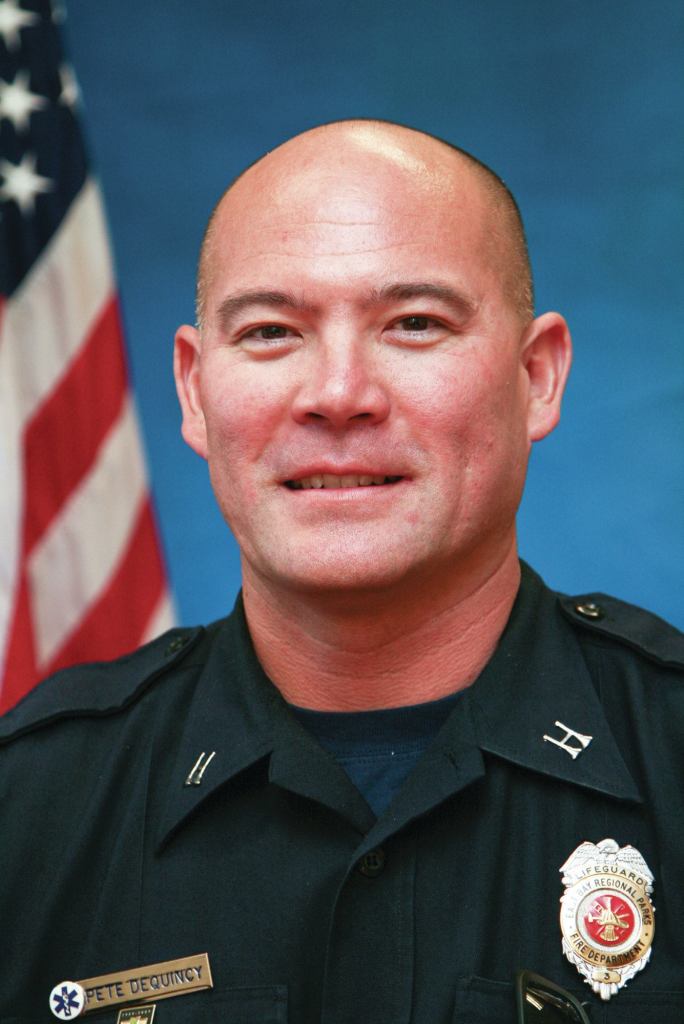This is my coronavirus story:
It’s been a week since California initiated its statewide Shelter in Place (SIP) order. Within Lifeguard Services, I alone, as manager, was identified as “essential” due to taking over the supervision of EMS for the Fire Department five months ago. I sent home all my permanent staff so they could work remotely.
As aquatic manager, I oversee 12 seasonal aquatics facilities, which consists of six lakefronts, three artificial lagoons and three swimming pools. Our seasonal workforce includes more than 60 lifeguards and swim instructors. Then we have seven permanent staffers. Before coronavirus, I had a standard work schedule of 9 to 5 Monday through Friday — very routine, very predictable, very unexciting.
The challenges my staff dealt with were the same as most aquatics agencies: recruitment of new lifeguards, retention of returning lifeguards, leadership development, the creation of new programming for our junior lifeguards, exploring new areas for drowning prevention outreach, and the expansion of personnel policies.
Everything changed last Monday.
School is closed, daycare is closed, and my 7-year old is home and full of energy. My wife is now based at our home. She oversees the budget of our agency’s Public Safety Department: Police, Fire, and Lifeguard Services. She works afternoons into the evenings so we can share child-care duties.
Like everybody else, we had to adjust quickly. On Monday night, we scrambled to build an office space in the upstairs bedroom. It’s small and cramped. We squeezed a folding table between the bed and a closet door. There’s a view — she says it nice, and I pretend to believe her. The first couple days since the SIP were not so great — a little chaotic to say the least. Nothing about the situation is nice; it’s more like falling into the middle of an icy lake at night, gasping for breath when you surface, and trying to figure out the best direction to swim to safe shore. And it changes every day.
Three things help me deal with COVID-19: routine, exercise and communication.
My Covid-19 schedule is complicated, including both my personal and work lives. However I was able to build a certain amount of routine into it:
I wake up at 5:30 a.m., fix a cup of tea, check the current news stream from my phone, and crack open my laptop and begin work by 6:00.
I work from home until 7:00, when I head to the office.
I try to be back home by 1:00 p.m. to take over child care until 4:00. Then I work at home from 4:00 to 5:00 p.m. while my son watches television. I return to child-care at duties at 5:00, make dinner at 6:00, then bed by 8:30 for my son (but most likely 9).
Then to bed by 10:30 (and asleep by 11:30).
I repeat this for five days, and work five hours on Saturday (the only way my wife and I can meet our work schedule hours).
There, the new 40-hour workweek.
And I’ve built a pretty structured routine into my work schedule. I check and return emails at 6:00 a.m. On my way to the office, my administrative specialist gives me a rundown of the day. I have my first daily phone call with one of my aquatic supervisors, who’s working from home, at 7:30 a.m. I have meetings with my other aquatic supervisor, our public safety command staff and Fire-EMS at the same time everyday. I return calls and emails with the remaining time at the office. Back home, I write up notes from the Fire-EMS call and get them out to the team.
For me, routine is crucial right now. It keeps my mind focused. It provides consistency not only to myself but to others. It provides predictability and, most important, stability. We all need stability — and your team needs stability too. So I find that these scheduled meetings and communications help.
Exercise is done by our staff every day. Some do cardio in their makeshift home gyms, cycle (indoors or out), or do a weight workout. I walk with my son for a couple miles every afternoon. I walk, he does the scooter thing. He does timed laps in a church parking lot down the street for Gummie Sharks. It gets us out, we see very few people, it gives my wife time to work in peace, and it provides me some mental peace so I can handle what is unfolding around me.
Finally comes communication. I talk to a lot of people every day. Some of the conversations are simple check-ins, some are work-related. But all are important. The daily conference calls followed with meeting notes provide guidance and support. And the communication works both ways: Staff also provide updates of the work they accomplished the previous week, and list tasks and duties that will be done throughout the coming week. Our aquatic supervisors check in with their personnel daily via one-on-one calls, and with a daily all-group meeting — all done by phone or via group video software, of course.
I also keep in touch with all my returning seasonal lifeguards who are confined to their houses. I send a weekly update to keep them informed of what is happening with their summer jobs. It reminds them of a happier time to come, when they will be back with their friends and colleagues. It reminds them that they may be isolated, but they are not alone.
As the boss, my job is to provide stability, guidance, and hope — which is the most important gift that I can give. Talk to staff, both permanent and seasonal. Remind them that you care about them in this chaotic time. It is so very important.
